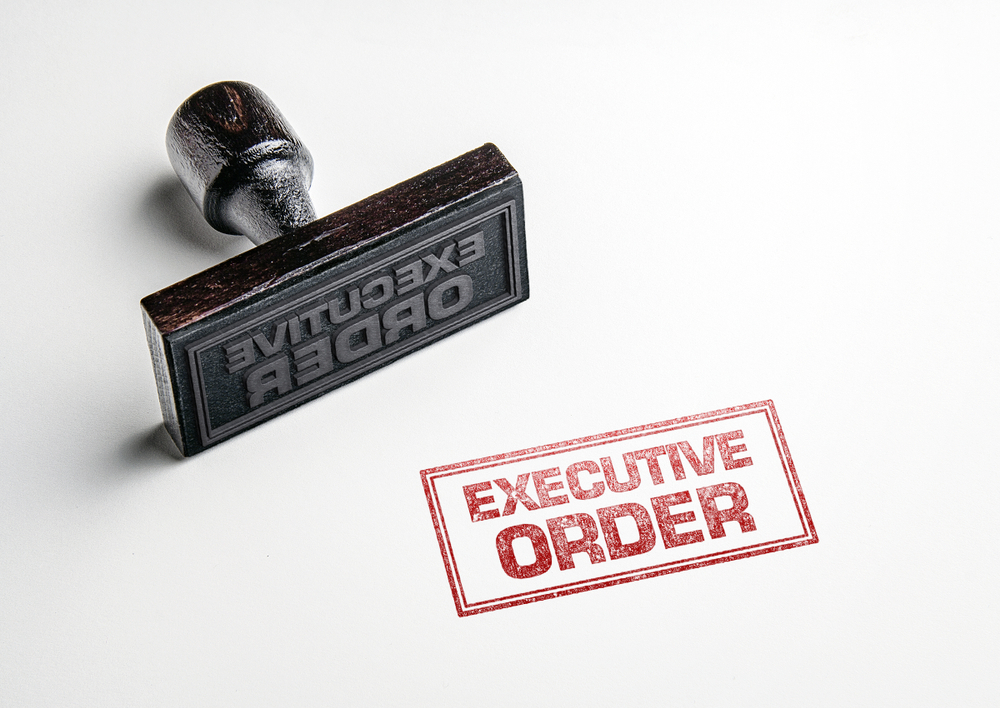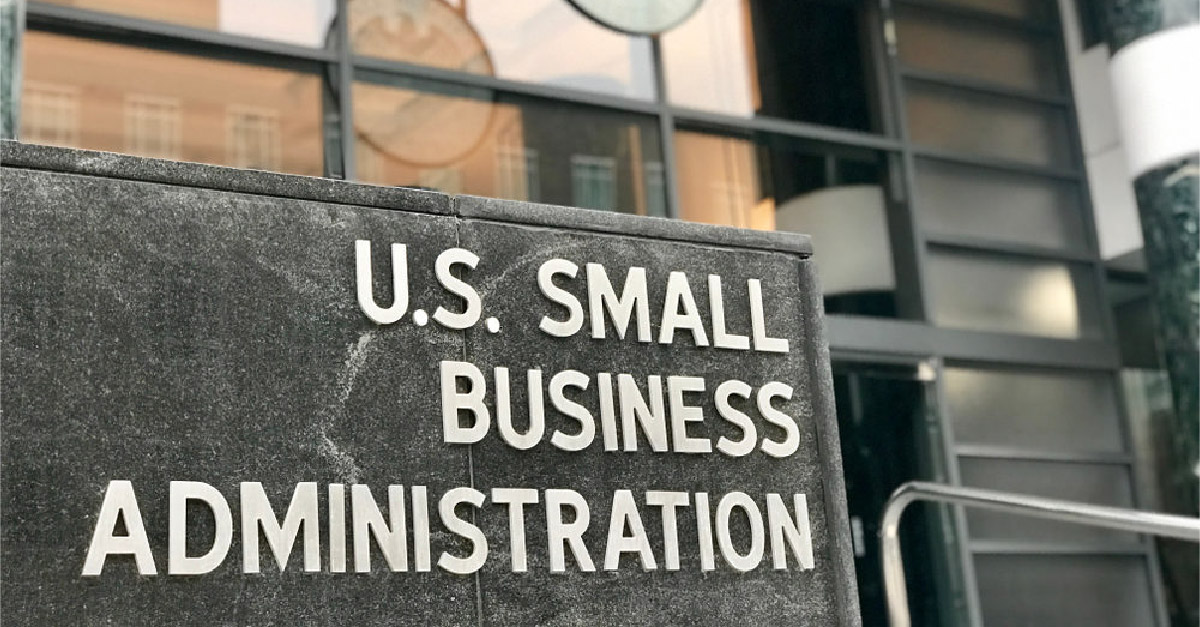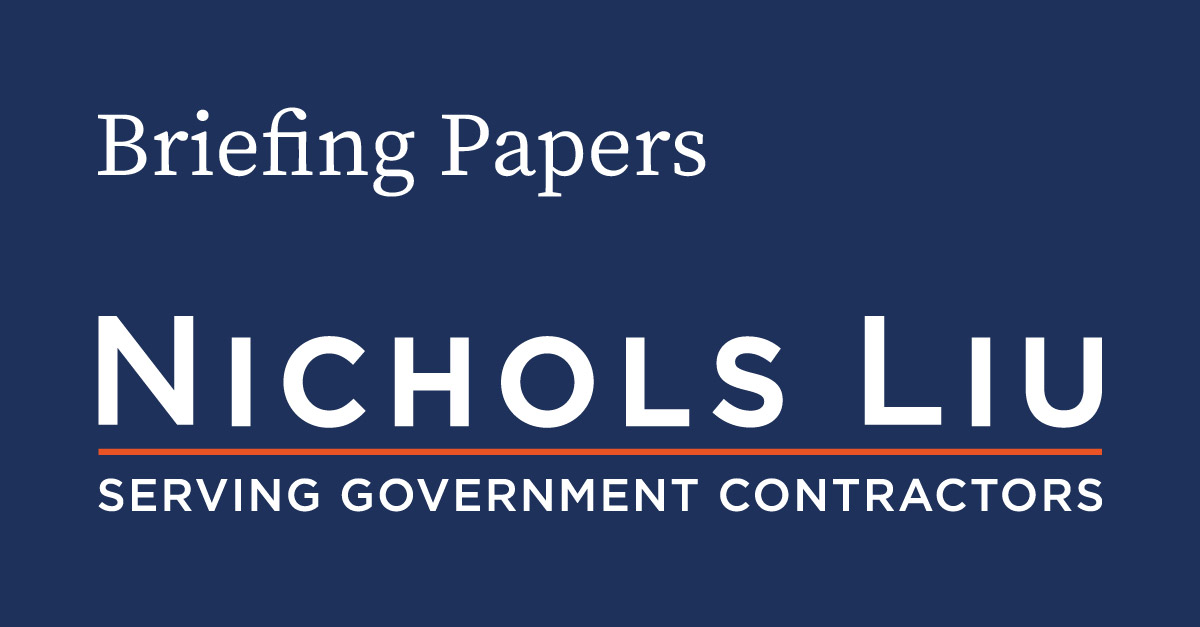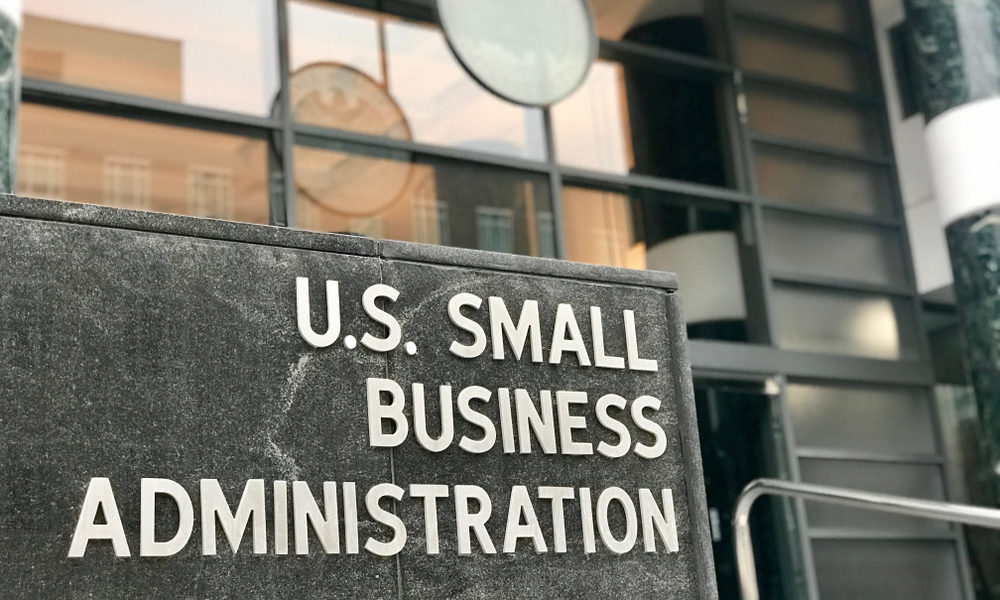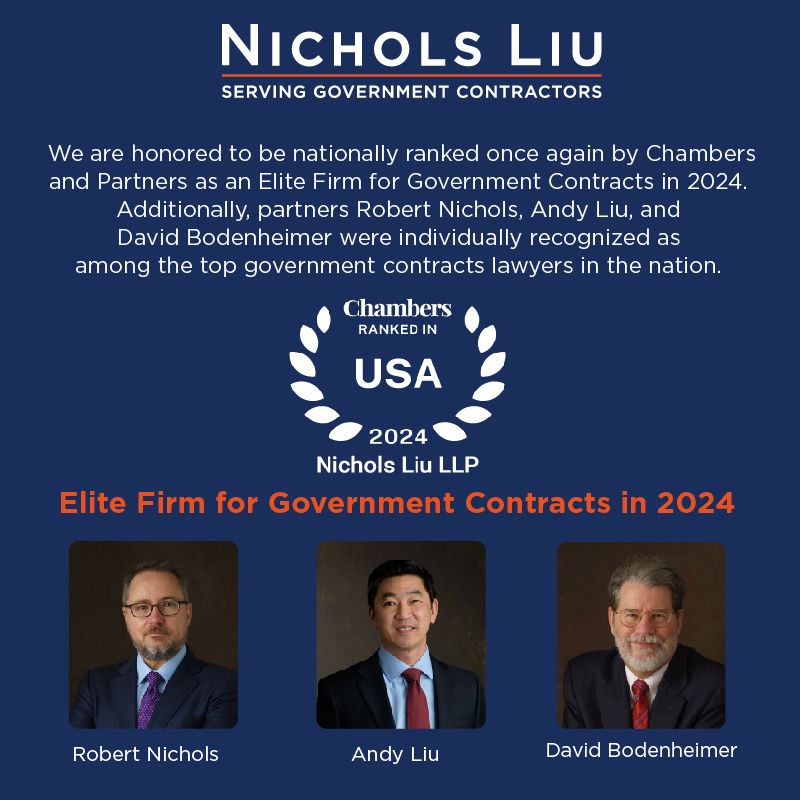By Sarah Curtis and Annie Hudgins
The Small Business Administration (“SBA”) issued “HUBZone Program Updates and Clarifications, and Clarifications to Other Small Business Programs” on August 23, 2024. The SBA further issued “Clarification to HUBZone Program Updates and Clarification and Potential Reforms” September 19, 2024. Following publication of the Proposed Rules, the SBA held tribal consultations and hearings across the country to listen to comments and respond to questions. Some of the key points to note in the Proposed Rules are:
- The Proposed Rule contains significant HUBZone Program changes to recertification timing, the definition of employee, and more.
- Consolidation and Uniformity of Recertification Requirements for all Programs in New 13 CFR § 125.12.
- The General Services Administration (“GSA”) Schedule recertification exception long enjoyed by GSA Schedule holders may come to a close.
- Comments on the Proposed Rule are due October 7th, 2024. Comments on the Mentor-Protégé Joint Venture Program or on Executive Order 14112 may be submitted anytime, but SBA is asking for them sooner rather than later.
Compared to most of SBA’s proposed rules over the years, this Proposed Rule is robust and includes more attention to detail than usual. Interestingly, the SBA asked for comments not just on the Proposed Rule, but also on the impact of Mentor-Protégé (“MP”) Joint Ventures (“JV”) in multiple award contracts (“MAC”) and implementation of Executive Order 14112.
1. Proposed Changes to the HUBZone Program
Recertification. SBA is proposing to require HUBZone firms be eligible to receive HUBZone contracts at the time of offer and would only be required to recertify every three years. SBA believes annual recertification is not necessary and may impose an undue burden on small businesses if firms are also required to be eligible at the time they submit offers on any HUBZone contracts. SBA believes this proposed change will better serve the goals of the HUBZone Program.
Eligibility Criteria. The SBA is also proposing notable changes to the central HUBZone eligibility criteria. Specifically, the SBA is recommending new rules that would require HUBZone firms to certify its attempt to maintain the 35% HUBZone residency requirement during its application for HUBZone certification, at the time recertification is complete, and at the time of offer for any HUBZone contract. The SBA is also proposing additional evidence for conducting work at the principal office. The SBA would require firms to provide a lease that commenced at least 30 days prior to the date of the SBA’s review and ends at least 60 days after the date of the SBA’s review, essentially requiring a firm to provide an active lease to satisfy the principal office requirement. The SBA’s approach to this requirement at such a granular level could leave many businesses vulnerable to accidentally and unintentionally falling out of compliance.
Employees. Additionally, the SBA is proposing that in order for HUBZone employees to qualify for the 35% requirement, employees must work 80 hours per month, as opposed to 40 hours per month. The SBA believes that the 40-hour minimum is not sufficient to promote the purpose of the Program because an individual could work 40 hours in one week and would not require the company to have a genuine presence in the HUBZone at all times.
Many businesses think the minimum hours requirement can be improved beyond what the SBA proposes. Given the policy purpose of the minimum hours requirement, a better approach could be that HUBZone businesses are required to meet a minimum number of hours per week, rather than per month. The question then becomes what number of hours is reasonable: 40, 80, or something else. From the SBA’s perspective, requiring individuals to work 80 hours per month will encourage legitimate work and career betterment for individuals while avoiding fraud, all of which are goals of the HUBZone Program. From the contractor’s perspective, 80 hours per month is an unreasonable doubling from the current framework. This level of change may not be sustainable, leading to cutbacks in businesses that cannot afford 80 hours per month in salary or benefits, and deters businesses from the opportunity to consider certain pools of part-time workers such as students or single parents. Some contractors suggest SBA consider a phased approach if it decides to proceed with this increased employee hours requirement.
Size Protests. Additionally, SBA proposes major changes to the interested party requirements for size protests. Currently, any offeror on a HUBZone set-aside can bring a HUBZone protest, per 13 C.F.R. § 126.103. As the regulation is written, it doesn’t specify that the offeror has to be eligible for the set-aside. SBA proposes to change interested party requirements so that only HUBZone parties can be interested parties for the purposes of a protest. The result will be that only other HUBZone businesses could protest another HUBZone company’s HUBZone status.
2. Proposed Changes to the Mentor-Protégé Joint Venture Program
Past Performance Evaluation. Although initially feared by many to have significant impacts on the MP Program, the proposed changes are fairly minor. For now, the SBA is proposing to change the rules governing how an Agency evaluates past performance and past performance of a JV in the SBA’s MP Program. Currently, when MP JVs compete for contract opportunities, the Agency does not require the Protégé firm to individually meet the same evaluation criteria as that required of other offerors generally. However, a recent decision by the Court of Federal Claims has muddled the SBA’s intention as to what past performance an Agency can require of a Protégé JV partner and how past performance should be evaluated.
The SBA’s Proposed Rule inserts guidance on this point and clarifies that while the Protégé JV partner need not have the same level of capability as any other offeror, the Proposed Rule does permit an Agency to require some past performance at a dollar level below what would be required of JV Mentor partners or of individual offerors. For example, where offerors must generally demonstrate successful performance on five contracts with a value of at least $20 million, an Agency could instead require a Protégé JV partner to demonstrate one or two contracts valued at $10 million or $8 million.
Not long after the SBA issued this Proposed Rule, they issued clarifications regarding the scope providing that it does not address the exclusion from affiliation available to MP JVs or the applicability of the HUBZone price evaluation preference to HUBZone JVs formed under the MP Program. Those issues, the SBA made clear, are outside the scope of this proposed HUBZone Plus ule.
3. Streamlining the Recertification Rules At 13 C.F.R. § 125.12
The SBA’s current approach to recertification requirements in all its size and status programs leaves many government contractors scratching their heads with good reason. The current regulations are contained in four different places and include various differences. With this new rule, the SBA has indicated that such differences are unintentional.
To that end, the SBA proposes to remove all recertification requirements from the individual program regulations and consolidate the recertification requirements in the new section at 13 C.F.R. § 125.12. Of note, the Proposed Rule would provide that a certified HUBZone small business concern that acquires, is acquired by, or merges with another business entity must provide evidence to the SBA, within 30 calendar days of the transaction becoming final, that the concern continues to meet the HUBZone eligibility requirements. While this is already current policy for the SBA, this change codifies the recertification requirements for HUBZone specifically and reenforces the SBA’s intent to harmonize the recertification requirements across its programs.
Contractors concerned about size on MACs should be aware of how triggering events could impact their ability to remain eligible for options and task orders. Currently, businesses that are subject to a merger or acquisition will maintain size status for the life of the contract unless a recertification is specifically requested by the Contracting Officer. The SBA’s Proposed Rule will restrict that framework and potentially limit a business’s ability to do business under MACs after a disqualifying event. If a size recertification is triggered pursuant to 13 C.F.R. § 125.12, the date to determine size will be the date of the triggering event. If the business can no longer certify as small following the triggering event, this disqualifying recertification will render the business ineligible for any further orders or options set-aside under the MAC. However, if the contracting officer has requested the recertification along with an offer, size will be determined on the date of that specific order.
Contractors with a GSA Federal Supply Schedule (“FSS”) should be aware that the SBA is proposing to write-out the recertification exception long thought to apply to GSA FSS holders. Under the Proposed Rule, if an event occurs triggering recertification, size status would be determined as of the date of the trigger or as of the offer date for a particular order. SBA hopes this clarifies that when a contracting officer requests recertification of size with respect to an order or agreement, the FSS exception does not apply. If there is a disqualifying size recertification, the contractor is required to notify the contracting officer for the underlying contract, notify the contracting officer for each existing order, and update its SAM.gov profile to reflect its current size status. Ultimately, this renders the contractor no longer eligible for set-aside orders against the FSS contract, representing a major change from past practices in the GSA FSS universe.
4. Negative Control Changes
While the Service Disabled Veteran Owned Small Business (“SDVOSB”) program regulations have enumerated exceptions to the concept of negative control, the contours of negative control with respect to the SBA’s other programs have been developed over a long line of cases finding distinctions between ordinary and extraordinary actions.
The SBA’s intent is to again create some uniformity. To do this, the SBA is proposing to add an additional extraordinary circumstance to the VetCert regulations and amend the affiliation test governing the 8(a), woman-owned small business, and economically disadvantaged woman-owned small business Programs. In addition to creating a sense of harmony, the SBA’s proposed regulations will cause the majority shareholders to maintain a bit less control over their small business concern.
5. Tribal Consultations & Ombudsman’s Hearing
Following the issuance of the proposed rules discussed here, the SBA hosted tribal consultations in Albuquerque, New Mexico; Oklahoma City, Oklahoma; Anchorage, Alaska; Honolulu, Hawaii; and Washington, D.C. In addition, the SBA hosted an additional pre-consultation meeting online and the SBA’s Office of the National Ombudsman also held a hearing in Washington, D.C. to discuss the particular impact of MP JVs on MACs.
There were a number of clarifying questions asked and comments offered at the various consultations, including requests for more time to comment. However, the Ombudsman’s hearing on MP JVs seemed to get the biggest attendance and offering of solutions. A number of speakers offered up alternatives to what some see as an issue of MP JVs dominating small business positions on MACs. A common comment at the hearing was a plea to not “throw the baby out with the bathwater.” Regardless of the level of support for the Program that speakers offered, it was an almost universal statement that some changes are needed to protect small businesses.
A common theme among testimony was advocating for increases in competition in the small business space without MP JVs dominating MAC vehicles. Since 2018, the number of JVs has doubled. If that trend continues, small businesses venturing together or with a large mentor will become the norm as opposed to individual small entities. This is a challenge because it raises the bar to get a seat on MACs and it raises the bar to compete for task orders thereafter. Many participants suggested reining in this trend without eliminating the usefulness of the program. To that end, businesses suggested removing the MP JV affiliation exception, revising the three and two rules, changing how past performance is credited by Agencies during proposal evaluations, establishing different thresholds for task order competition, refining regulations and scorecard systems to allow all smalls to compete for MACs, changing the structure to past performance evaluation, changing the business systems evaluations, and placing awards into buckets, to name a few.
While there are no further regulations proposed impacting the MP JV Program at this time, at the hearing as well as at the Washington D.C. Tribal Consultation, the SBA repeatedly requested comments on this issue.
* * *
Nichols Law’s team will be monitoring the progress of this Proposed Rule. Comments on the Proposed Rule are due on or before October 7, 2024, and should be submitted online at regulations.gov. Comments on the MP JV changes will be accepted at any time.
